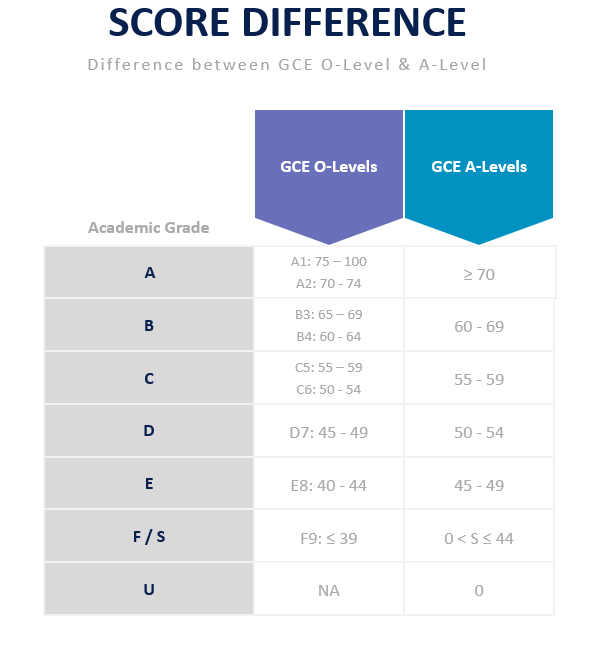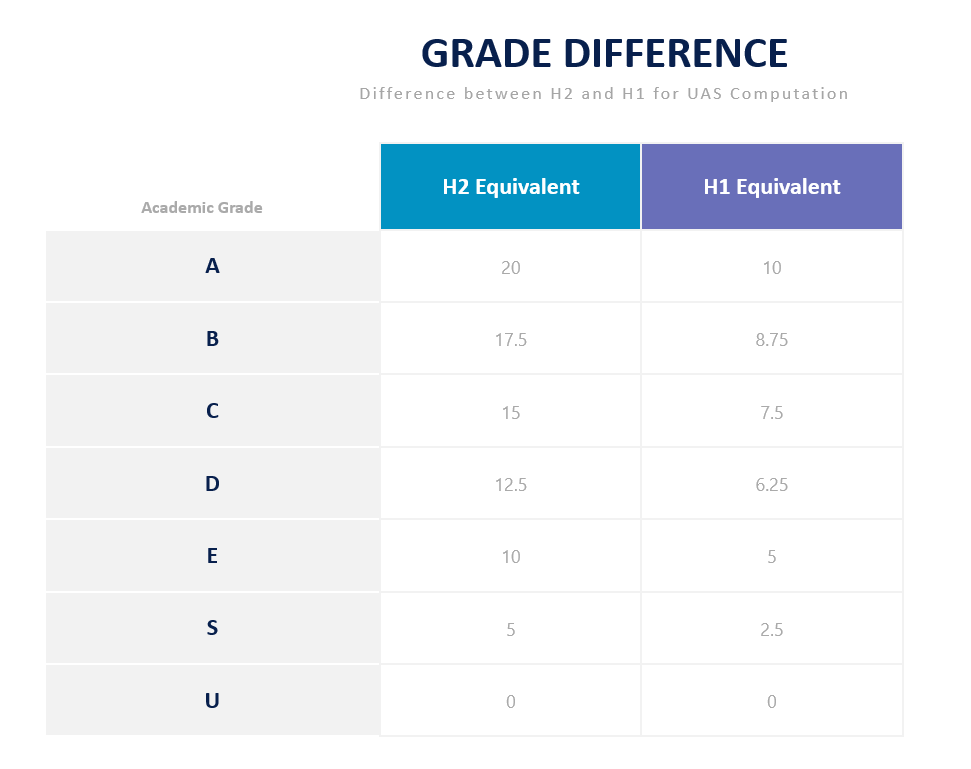First of all, for those of you who are just about to start your JC journey, CONGRATULATIONS for getting past O-Levels! One milestone down in your education journey!
For those of you who are in the middle of your JC journey, CONGRATULATIONS as well! You’ve made it thus far! Keep going!
By now, many of you would have probably asked your siblings / relatives / seniors who have gone down the JC route for advice and would probably have heard some horror stories.
‘Not much sleep…’
‘Very normal to fail your subjects in JC…’
‘Just pass H1 Mother Tongue can liao… focus on your other subjects…’
All these pieces of advice, while well-meaning, might end up escalating some of your fears and anxieties.
So let’s start by debunking myths and offer pieces of advice to help you get into the right frame of mind before you embark on this journey! For those of you who are in the middle of your JC journey, the pieces of advice offered throughout might still be of some use to you.
So let’s get started!
Myth #1: It is very easy to fail your subjects during school tests and exams.
The straightforward answer is yes.
But let’s not get too fatalistic here and try to understand why there is some element of truth to this statement and why the situation is as it is.
Firstly, you will need to know the difference between O-Levels and A-Levels grading systems.

(*Difference between GCE O-Levels and A-Levels scoring)
Similarity:
As we can see from the above table, the scores to obtain As and Bs remain the same for O-Levels and A-Levels, with the exception of a further division into two sub-grading of A1 and A2 for ‘A’ and B3 and B4 for ‘B’ at the O-Levels. Conversely, the A-Levels make no distinction.
Differences:
However, it is more difficult to achieve a C grade at the A-Levels as a student getting C6 at the O-Levels would be perceived as a D grade at the A-Levels.
Finally, while the score distribution for students who receive an F9 at the O-Levels is broader, students who fail the subject are further divided into ‘S’ and ‘U’ at the A-Levels. This is necessary as students who receive an S may or may not choose to retake their papers while students who receive a U grade have no choice but to retake the exams. The latter will also not have their grade reflected in their A-Level Certificate.
Being aware of the grade differences between O-Levels and A-Levels will help you to be prepared for the onslaught of ‘failing’ grades when you first transitioned from Secondary to JC and you start to take JC school tests and exams.
This is also accompanied with the fact that the content knowledge taught for the different subjects is much more in-depth and complex. In addition, certain subjects like Economics are newly introduced at the A-Levels and students may struggle at first to grasp the concepts taught.
Hence, do not fret if you find that your test grades are not up to your expectations.
As school tests tend to focus on specific topics, use the grades as checkpoints for yourself to determine if you have fully grasped the concepts in these topics. Following which, focus on these topics when preparing for the school exams. After all, certain schools make it a point to include Mid-year Exam results as part of the weighting of students’ final grade for the JC1 Promotional Exams (otherwise known as the End-of-Year Exams).
Although weighting becomes less significant in JC2 as schools gear students towards the GCE A-Levels, the strategy of knowing your weaker topics through school exams and tests still holds.
That being said, there are also many factors resulting in a failing grade for school exams. It could be insufficient practice for the topics tested during the exams, high stress levels and/ or the school exam was set to be deliberately difficult.
As a result, do not let school exam grades throw you off your course. After all, remember that the GCE A-Levels is the endgame here.
Food for thought: Would you rather have done consistently well for your school papers and exams and not do as well for the A-Levels due to complacency or fare poorly for your school papers but do well for the A-Levels because you didn’t give up?
In reality, there are students who do consistently well throughout JC and ultimately at the GCE A-Levels. However, they belong to a minority. And if you happen to be one of them, you are very fortunate. If you are not, there is no need to begrudge them. Stop making comparisons and just focus on your own path!
Additionally, many schools also deliberately set papers difficult to challenge students and to keep students on their toes to avoid complacency. Regardless of the intentions, avoid getting too caught up in your emotions and take active steps to pull yourself out of the situation.
Don’t be disheartened when you realise you are struggling! Form study groups with like-minded peers, seek advice and help from your seniors, schoolteachers and get external help from specialised subject tutors if you need to. Create a study plan and don’t be afraid to change things up if you realise that there are certain subjects you require more time to revise and study for.
Myth #2: 4 H2s is better than 3 H2s & 1 H1 subject combination
Not completely true.
Firstly, let us talk about the benefit of having 4 H2s. It is true that having 4 H2s increases your chances of getting a higher University Admission Score (UAS) / Rank Point. This is because having 4 H2s will enable the score computation to take your weakest H2 and calculate it as a H1.
However, having 4 H2s has its downside as well because H2 subjects are heavier in terms of content. This means that you have more papers to prepare and take as compared with a H1 subject.
While the workload may be manageable to some, many students often find themselves struggling to cope with the workload. This is on top of other school commitments, Co-Curricular Activities (CCAs) and activities outside of school that they may have.
As a result, because they are trying to do everything all at once, their subjects prove mediocre or suffer as a result.
As I advised many of your seniors in the past, choose a 4 H2 subject combination at the start of your JC life if you are unsure. Towards the end of JC1, decide if you need to drop 1 of them to a H1 Level. Judge based on your ability to cope and not based on other’s perception.
If you find yourself struggling – do not hesitate to drop one of the subjects to a H1.
While certain schools allow only specific H2 subjects to be dropped to a H1 subject and the choices are also dependent on whether you are in the Arts or Science Stream, do not feel the need to keep doing a 4 H2 subject combination just because your peers are doing so.
Ultimately, every student has their strengths and weaknesses and there is absolutely no shame in dropping a H2 subject to a H1 level at the end of JC1 just so that you can cope better and place more focus on the other H2 subjects that you are actually better at in the final gear-up in JC2.
That being said, certain schools mandate 4 H2 subject combinations for their students (particularly those on the Integrated Programme (IP) track). Regardless, do speak to your school teachers or specific subject teachers if you are thinking of dropping a H2 to a H1. Communication is key. If a schoolteacher or an authority figure ‘judges’ you somehow for choosing this option (I’ve heard of some horror stories, not gonna lie), it makes them a lesser person. Not you.
Don’t beat yourself up for choosing the ‘less successful’ route.
You have the right to decide what is best for you and what is ‘best’ or ‘successful’ differs for every individual.
After all, JC life is tough and very stressful but it is also a good time and opportunity for self-growth and for you to have a better understanding of how you manage your workload and stress.
Myth #3: H1 subjects are not as important as H2 subjects.
No, not true at all.
While it is true that in terms of UAS / Rank Points, a H1 subject holds less weighting than a H2 subject, a quantitative score should not only be the sole focus.

As seen from the table above, the weighting differs for every grade received depending on whether it is a H1 or H2 equivalent.
Nonetheless, UAS / Rank Points is not the only criterion that universities look at prior to accepting a student.
Depending on the undergraduate degree you intend to pursue, certain courses have additional prerequisites. For example, in order to study Law and Mass Communications (at NTU Wee Kim Wee School), your H1 General Paper grade has to be minimally a ‘B’ grade. Even for the more competitive and popular courses like Business, they tend to rely on H1 grades as a cutoff point to accepting students. After all, who doesn’t prefer a student who can read and write well? These skill sets will come in handy in various facets of work and life.
That being said, certain H1 subjects are seen as less crucial and this perception arises primarily because they are taken separately. A separate seating entails that you will be awarded a separate certificate. This applies to subjects like H1 Mother Tongue and Project Work. H1 Mother Tongue is taken in the middle of JC1 but students who took Higher Mother Tongue in Secondary are exempted. Project Work is assessed throughout the year and culminates at the end of JC1 with a final Oral Presentation as a group. The certificate will be presented sometime in JC2.
This means that there will be a total of 3 certificates due to the different seating for the different subjects. And guess which one is the one that most students hold in higher regard?
No prizes for guessing; it is the final certificate.
However, let’s not forget that the overall UAS / Rank Points computed will still take into account these H1 subjects as students are required to submit those scores when applying for universities.
There are tools that help students calculate their UAS scores. You can find one here.
For schools that do not offer H1 Project Work, the universities will still consider your overall performance during your final seating for the GCE A-Levels. View an NUS additional resource here.
Students who do not wish to pursue their Mother Tongue can substitute it with a foreign language at the H1 Level.
As seen, while H1 subjects do not have a heavier weighting in comparison to the H2s, they are still part of one’s overall UAS and can be a prerequisite to some of the more popular university courses. Hence, do not neglect your H1s and leave them to the last minute!
On a final note, if you are looking for additional support for your H1 General Paper, feel free to look out for English & JC General Paper resources from Blue Herring Academy right here.
JC is after all, the final phase of your education journey where you can have specialised tutors to guide you every step of the way. As much as this is a bitter pill to swallow, you can hardly find experienced tutors on the university level as the courses are designed by different professors.
Thus, don’t hesitate to get the help you need in JC so that you don’t suffer unnecessarily!





